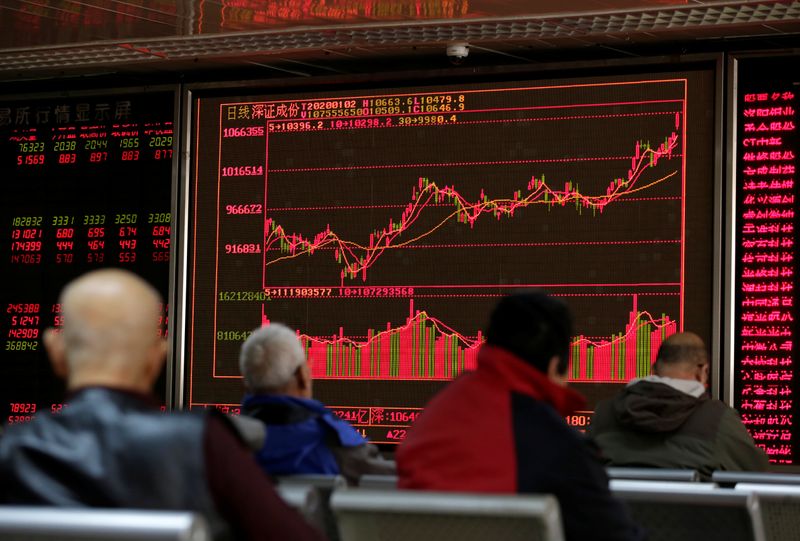SHANGHAI (Reuters) - China's newly-created mini-IPO market kicked off trading on Monday in a frenzy as circuit breakers were triggered for both surging and slumping stocks on their debuts.
The price drops in particular are very rare in new listings in China, which is aiming to help the country's small firms access capital quickly through the special IPO platform and grow the next generation of innovative companies.
Zhou Yunnan, a veteran investor on the New Third Board, home to mostly small, private firms, said he was surprised by the price action.
"Today's trading will impact investors' future trading strategies," he said.
Trading in the 32 companies, which debuted after raising a combined 9.5 billion yuan ($1.36 billion) via the first batch of initial public offerings on the New Third Board, was characterised by heavy volumes and volatility.
China reformed the moribund New Third Board this year as part of efforts to channel much-needed capital into innovative private start-ups in a coronavirus-ravaged economy. The private sector accounts for 80% of China's urban jobs.
Under the reform, qualified companies are allowed to sell shares publicly on the board, while more types of investors, including mutual funds, are granted access to improve liquidity.
The New Third Board is also designed to become a feeder for bigger stock markets, including Shanghai's STAR Market, and Shenzhen's ChiNext, as regulators seek to build a multi-tiered capital market.
China aims to build a capital market which is "regulated, transparent, vibrant and resilient," Yan Qingmin, vice Chairman of the China Securities Regulatory Commission (CSRC), said at the listing ceremony on Monday.
By lunch break, 20 stocks fell from their IPO prices while the remaining dozen rose.
Vaccine maker Winsun Bio was among the best performers, jumping 64%, while Ningxia Kai Tian Gas Development Co tumbled 16%. Several stocks triggered circuit breakers after rising or falling 30% and 60%.
The New Third Board, which has been struggling for relevance after the initial enthusiasm faded away, has made some headway in attracting more investors.
Qualified investors jumped by five times from end-2019 to 1.6 million, while the IPOs of the 32 companies were 172 times oversubscribed on average.
The New Third Board reform "is significant to China's economic restructuring," said Li Yimei, general manager of China Asset Management Co, which launched the country's first mutual fund product targeting the mini-IPO market.

"I believe more and more mutual funds will join the army of investors, and bring in more liquidity to this market."
